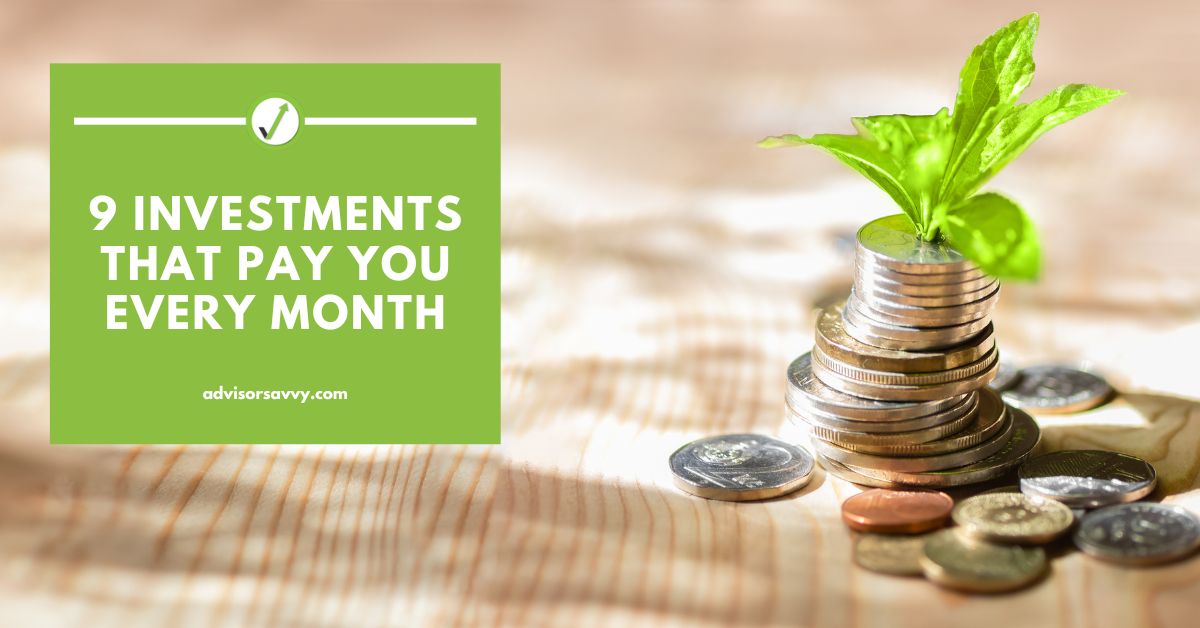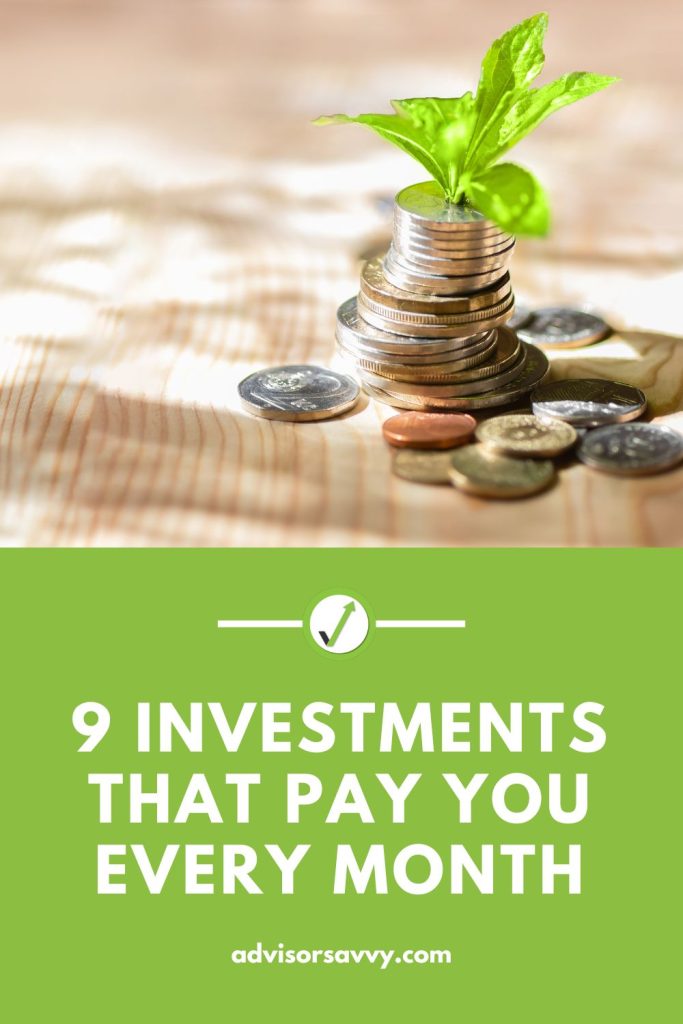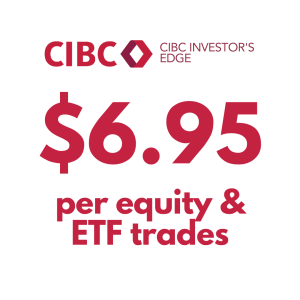
Investments that pay you every month help you find financial freedom and achieve your financial goals. They allow you to live more independently and on your own terms. Building up the right investments that pay you every month takes time, consideration and money. And unfortunately, the path won’t always be linear, you may have setbacks and losses. Most people seek these types of investments for retirement or other large goals, like saving for a down payment on a home. However, passive income provides additional freedom, security and flexibility which supports retirement and an independent lifestyle. These benefits can be accessed at any point in your life. With dedication and effort, you can build a portfolio of investments that pay you every month. Invest in what interests you and aligns with your level of risk tolerance. No investment is without risk but given the right information, you can begin wisely.

Table of contents
What is passive income?
Passive income is a source of money which requires no or minimal effort to obtain. In other words, it’s an investment that earns income without your routine involvement or consideration. Some common examples of passive income include rental income, dividends, peer to peer lending, and private equity. You might also earn passive income by buying and holding an asset for an extended period of time, then selling it for a profit. This is commonly referred to as a capital gain.
The main distinction is that passive income is the exact opposite of active income. Active income comes from regularly participating in an action that generates money. Moreover, active income is most often money earned from employment, self-employment, or a business in which you routinely work.
It’s important to note that passive income may not be as simple as it sounds. It requires significant upfront costs or work to obtain and set up. Many people either do not invest their money and time correctly or give up too soon. The benefit of passive income is that once it is set up, you can step back and let money roll in. You may have to take some time to make decisions. However, you are not the one actively working for this source of income.
CIBC Investor’s Line Offer
Up to $6.95 per online stock or ETF trade. Plus, there’s no minimum account balance.
Passive income is subject to income taxes, just like active income. However, it is taxed as investment income which is different from the tax treatment of active income.
Why should I care about having a passive income?
Passive income is important to consider for financial freedom and the achievement of financial goals. A good baseline goal for passive income is to have an additional income source in retirement. However, there are many reasons someone should care about passive income. For instance, wanting a lifestyle where you don’t need to rely on an employer for income, go back to school, or building additional income to save for a down payment on a home.
If you are more dedicated, driven, and eager, you can find ways to make passive income your main income stream more quickly. Your goals with passive income are up to you. They will heavily be influenced by your current resources and level of risk aversion.
Related Reading: Top 10 Retirement Planning Tips for Canadians
9 Investments That Pay You Every Month
Not all investments pay every month necessarily. A lot of investments will pay quarterly, semi-annually or annually. But many equivalent investment options pay you every month. When making your investments you need to be certain of the timeframe the entity, company, bond, or stock pays out. Some sources of passive income will only pay out after significant lock-in periods. These lock-in periods can sometimes be many years at a time. Ultimately, the main thing to consider is whether an investment pays passive income and how much you can expect to yield.
Below is a list of investments that can potentially pay you every month:
CIBC Investor’s Line Offer
Up to $6.95 per online stock or ETF trade. Plus, there’s no minimum account balance.
1. Certificate of Deposit and Guaranteed Investment Certificate
A Certificate of Deposit is money that is locked in with a bank for a period between 30 days to 10 years. In essence, this is very similar to a Guaranteed Investment Certificate, which is also an investment that can pay you every month. Interest accrues on the deposited amount regularly. This occurs at a higher rate than your typical savings account.
However, if you withdraw earlier than your locked-in period, you face penalties. Earning money from interest in a Certificate of Deposit is passive income. Be certain that you understand the period your money is locked in for. Also, educate yourself on any penalties for early withdrawal. In general, Certificates of Deposit are considered lower-risk investments. They are insured by banks up to a certain amount.
Related Reading: How to Invest in Index Funds in Canada
2. Corporate Bonds
Corporate Bonds come with short-term or long-term options. An investor will give a “loan” to a corporation in the form of a bond. This corporate bond is held for a period and used by the company to aide their operations.
While it is held, the corporation pays interest to the investor in regular periods. Once the bond reaches maturity, the original investment is returned, plus any outstanding interest. With the investment returned, interest payments end. Longer-term bonds generally have higher interest amounts. This is considered a higher-risk investment. You need to be aware of the stability and growth plans of a corporation before making an investment decision.
3. Government Bonds
Government Bonds allow you to earn interest on money held and used by the government. This will not pay monthly unless you purchase a 30-day bond. However, money will accrue for the period of the bond. Occasionally some governments pay monthly interest, however, this is not common. Typically bonds are for multiple years. They are considered a safe investment as they are backed by the government, especially when compared to corporate bonds which yield more risk.
4. Mutual Funds and Exchange Traded Funds (ETFs)
Funds are composed of pooled money from an array of investors that increases purchasing power in markets. The money is used to invest in a variety of investments, typically within a certain sector or industry. Mutual Funds and Exchange Traded Funds (ETF) have key differences, but they share more similarities.
A fund can be invested in and sold much like a stock. It grows or depreciates according to performance and demand. Both Mutual Funds and Exchange Traded Funds can pay dividends through the years. Plus, the value of your investment can appreciate over time. The key differences are in how they are managed, and when they can be purchased and sold.
Related Reading: ETFs vs Mutual Funds: Which is Better?
5. Dividend Paying Stocks
When you buy a stock, you become a fractional owner of a company. As such, some companies will offer profit sharing, in the form of dividends. Dividends are paid out in regular periods throughout the year to shareholders. Each company determines if they pay dividends, how much they pay in dividends, and how often they pay. Some companies may offer dividend reinvestment plans. With these, you can reinvest dividend payments into the company, thereby gaining additional shares at more stabilized stock prices.
Related Reading: Best Monthly Dividend Stocks
CIBC Investor’s Line Offer
Up to $6.95 per online stock or ETF trade. Plus, there’s no minimum account balance.
6. Real Estate Investment Trusts (REITs)
If you want to invest your money in real estate, but don’t have the necessary capital, a REIT is a low-entry option. Real Estate Investment Trusts (REITs) trade like stocks or mutual funds. When you invest in a REIT, you invest in a company that owns and manages a portfolio of properties or mortgages. REITs offer higher dividend payouts than comparable stocks. By law, they are required to pay out most of their profits every year. Their value fluctuates more with real estate markets changes than stock markets.
Related Reading: Best Canadian REITs for 2023
7. Master Limited Partnerships
Investing in Master Limited Partnerships can allow you to profit share with a business. This is done without the stress of operating the business. Master Limited Partnerships offer large payouts as they are exempt from paying taxes. Instead, investors must pay income tax on their portion. For Americans, this can create lucrative tax situations. Most often taxes can be deferred. However, this creates implications for Canadians. Beware of the tax tribulations of U.S. MLPs. While not the simplest method of an investment that pays you every month, it may be something you’d like to explore.
8. Real Estate Rentals
Real estate is a great investment with many rewards, but also some headaches. It has one of the highest barriers to entry as it costs a lot of money upfront because of the down payment and continuous mortgage payments. If you can save up the cash and buy land or property and yield enough income to afford a mortgage, you can easily earn passive rental income.
Whether that land has a house, mobile homes, trees, storage units, or commercial offices, it can be rented or sold for a profit in some capacity. If you’re from a city, the idea of renting a forest or farmland may be odd to you. However, some companies and people would rent this or purchase it for development purposes.
Although, it’s not always smooth sailing. Real estate must be maintained too. If something needs to be repaired, it’s on you as the landlord and property owner to shell out the cash to fix it. Many property owners end up being asset rich and cash poor when they invest in real estate. This is why it’s important to consider your savings and cash flow before diving into real estate investment.
Related Reading: What is Financial Leverage and Why is it Important?
9. Royalties or Lisencing Fees
If you have created, invented, or written anything, you can make money off this for life. This is a little complicated, as you would need to create something that has widespread use or demand. For instance, if you write a best selling book, you will profit off of every sale. If it becomes sensationalized, you might even be able to sell the rights for the book to become a movie. All of your original work from years ago can yield passive income for a lifetime through royalties.
Royalties are paid whenever a trademark, copyright, or any other intellectual property is used. For royalties to be paid, the use must aim to generate money. It is a small fee or ongoing payment. While you likely need to be an entrepreneur, creative, and/or an inventor, this can produce huge passive income.
Choosing Investments That Pay You Every Month
If you have decided you need to earn money passively, you are on your way to financial freedom. This won’t be obtained overnight. But with some dedication and education, you can build a portfolio of passive income streams. Be sure to choose investments that you can afford and make calculated risks during your journey. For instance, if you can’t comfortably afford real estate, then consider building a stock portfolio that focuses on high dividends. Or if you’re not a natural creative, don’t aim to earn royalties, consider purchasing bonds instead. Ultimately, investing is about sticking to what you know and what you’re good at!
Read More: 4 Types of Income

